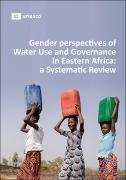Ministry of Education and Sports Institutional Repository: Recent submissions
Now showing items 21-40 of 520
-
Should we be afraid of neuroscience?
(UNESCO, 2022)In the field of neuroscience, reality has already surpassed fiction. Who could have imagined that it would one day be possible to implant false memories in an animal's brain, or to dictate a text to a computer by using ... -
Restoring biodiversity, reviving life
(UNESCO, 2021)Year after year, scientific studies are condemned to chronicle the sixth mass extinction - the decline of living organisms, the loss of species, the over-exploitation of resources, and the degradation of natural ... -
The 20s: Really the best age to be?
(UNESCO, 2021)Being young can be exciting and fun, but it is always challenging. Completing your studies, finding a job, finding somewhere to live-in short, taking the first steps of the rest of your life. If it was not easy before the ... -
The ocean: time to turn the tide
(UNESCO, 2021)Less than twenty per cent of the world's oceans have been explored so far. That is not a lot. But it is enough for us to know that the oceans are threatened by global warming, acidification, and pollution. Coral bleaching ... -
General Guidelines for the Implementation of Sustainability in Higher Education Institutions
(UNESCO, 2023)The 2030 Agenda is underpinned by the UN Sustainable Development Goals (SDGs), which are the common goals that humanity has chosen for itself through the agreement of all the United Nations Member States. The SDGs are ... -
Reinventing cities
(UNESCO, 2019)In this issue Cities have always been centres of power, attractiveness and prosperity. But the frenetic urbanization of recent decades is jeopardizing their historical function as melting pots that integrate and absorb ... -
Artificial intelligence: the promises and the threats
(UNESCO, 2018)Towards a global code of ethics for artificial intelligence research There have been spectacular advances in the field of artificial intelligence (Al) in recent years, leading to inventions that we had never thought ... -
Gender perspectives of Water Use and Governance in Eastern Africa: a Systematic Review
(UNESCO, 2023)This report examines the extent to which water initiatives (policies, strategies, plans, projects and programmes) have integrated a gender lens in thirteen countries in Eastern Africa (namely, Comoros, Djibouti, Eritrea, ... -
Welcome to the Anthropocene!
(UNESCO, 2018)Waiting for the heroes As you begin reading this April-June 2018 issue of the Courier, you are living in the Phanerozoic eon, the Cainozoic era, the Quaternary period and the Holocene epoch. These are all subdivisions of ... -
A Comprehensive Report on the Universal Post Primary Education & Training (UPPET/USE) & Universal Post O' Level Education & Training (UPOLET) National Headcount Exercise 2015
(MoES, 2015)Executive Summary Every year the Government of Uganda (Ministry of Education, Science, Technology and Sports) undertakes a headcount of benefiting students in the Universal Post Primary Education and Training schools and ... -
Universal Primary Education (UPE) Capitation Grant-Planning and Implementation Guidelines for the pilot Local Governments of: Lira, Kumi, Masindi and Rakai
(MoES, 2002-12)1.0 BACKGROUND 1.1 Primary Education is one of the key sectors identified in Governments Poverty Eradication Action Plan (1997), to benefit from the Poverty Action Fund (PAF). These PAF resources include the Universal ... -
Uganda Education Statistical Abstract 2002
(MoES, 2002)Introduction A BACKGROUND The annual education census exercise allows the Ministry of Education and Sports to collect all the necessary information about education in Uganda. This information is used as an input to the ... -
Uganda Education Statistical Abstract 2011
(MoES, 2011)EXECUTIVE SUMMARY Ministry of Education and Sports gathers information annually in a census exercise that covers all education subsectors i.e. Pre-primary, Primary, Secondary, Post-primary, Non-formal and Tertiary. In the ... -
Uganda Education Statistical Abstract 2010
(MoES, 2010)EXECUTIVE SUMMARY Ministry of education and sports gathers information annually in a census exercise that covers all Education levels (Pre-primary, Primary, Secondary, Post-primary, Non-formal and Tertiary). In the same ... -
The Education and Sports Sector Annual Performance Report ESSAPR Covering FY2011/12
(MoES, 2012-10)EXECUTIVE SUMMARY 1.0 Introduction This is the Ninth (9th) Education and Sports Sector Annual Performance Report (ESSAPR), published annually as required by MOES since October 2004. The report highlights progress made ... -
The Education and Sports Sector Annual Performance Report FY2012/13
(MoES, 2013-06)1.0 Introduction The Education and Sports Sector Annual Performance Report (ESSAPR), is an institutional document required to be produced annually by the Education and Sports Sector. It is the main document that presents ... -
News-Letter Directorate of Industrial Training Issue No. 3
(MoES, 2021-10) -
Teacher Education Symposium Magazine
(MoES, 2019)The TIET department at the Ministry of Education and Sports is responsible for training of teachers for all levels of Uganda's education system. It is indeed a great pleasure for me, as Commissioner responsible, to welcome ... -
Report on the Stakeholders Workshop on Education for All
(UNATCOM, 2009-10)Introduction The Workshop Moderator Ms Sarah Nambuya started the workshop by welcoming the participants. She highlighted that the purpose of the workshop was to seek the stakeholders' views in the Education Sector on how ... -
Psychosocial Support Training: Facilitators' Guide
(MoES, 2021-03)Introduction A Note to the Facilitator To minimize the spread to COVID-19, the Ministry of Education and Sports (MOES) closed schools on March 18, 2020. Learning for 4.5 million primary school Ugandan pupils was disrupted. ...





















